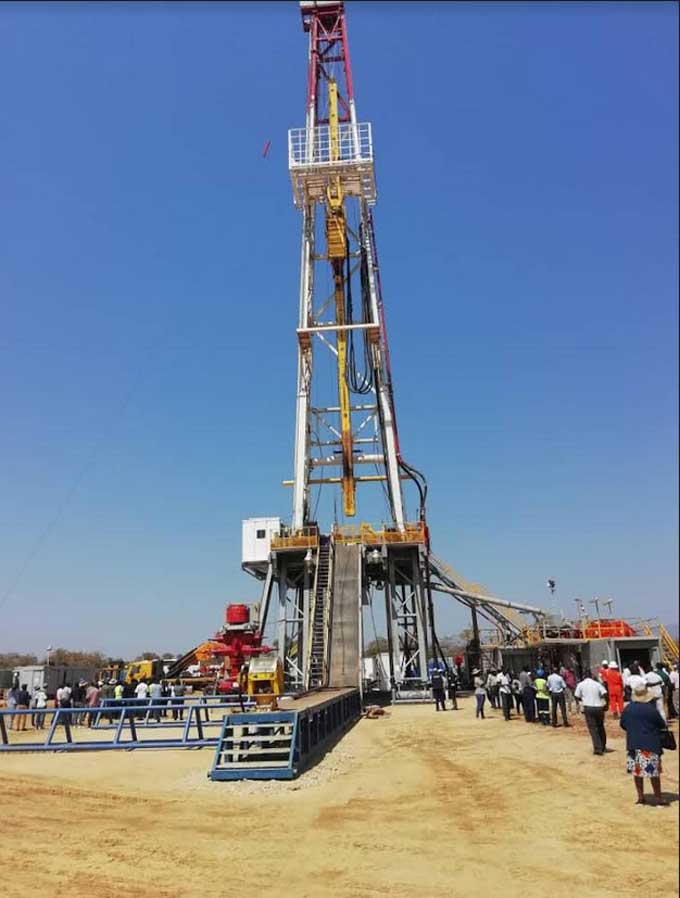
BY SHAME MAKOSHORI ZIMBABWE’S mining industry has proposed a fresh power import plan to avert the closure of mines as state-run power utility Zesa Holdings Limited struggles to meet electricity demand.
Electricity availability from Zesa’s power plants has been curtailed by breakdowns due to ageing infrastructure.
Demand for electricity has been peaking in line with the entry of massive chrome and iron ore processing facilities that have recently been brought on line.
The crisis has been compounded by the return of several mothballed gold mines in the past three years, which has made it crucial for Zimbabwe to scale up expansion plans.
Government says damaging blackouts will only be addressed after the commissioning of an expanded Hwange Thermal Power Station at the end of this year, which will move installed capacity to about 1 300 megawatts (MW) from 920MW currently.
The Chamber of Mines of Zimbabwe (CoMZ) says it wants funding for power imports to be deducted before the Reserve Bank of Zimbabwe (RBZ) takes 40% of their earnings.
Under a contentious foreign currency retention framework currently in force, the industry retains 60% of its foreign currency earnings from exports.
The remaining 40% is wired to firms in the free falling Zimbabwe dollar at the prevailing official exchange rate.
- Chamisa under fire over US$120K donation
- Mavhunga puts DeMbare into Chibuku quarterfinals
- Pension funds bet on Cabora Bassa oilfields
- Councils defy govt fire tender directive
Keep Reading
The industry has always complained that the value of earnings surrendered to authorities was too high.
In its fresh proposal, the CoMZ said authorities must increase retention rates to 80%.
On Friday, the CoMZ said it wanted new proposals to come into force as early as next week, when a review of the 2022 fiscal plan is announced, in order to stop production cuts.
“To mobilise the requisite foreign currency resource to import power mining companies are requiring we are proposing that the portion of forex paid for to import power be deducted before the sixty/40 export retention rule is applied.
“The 60% retention on export receipts must be applied to the remaining forex net of the amount paid to import electricity,” the CoMZ said, as it spelt out its expectations for the upcoming policy review.
“The power situation for the mining industry remains fragile, with reports of power outages resulting in production stoppages and output losses.
“Our engagements with Zesa reveal the power utility is not able to provide the required power to the mining industry and that the industry will face shortages in the short term.
“Zesa further indicated that it is currently unable to import the shortfall and urged mining companies to import power directly.
“To this end, mining companies have organised themselves to import power through groups such as the energy intensive user group.
“While the initiatives are expected to improve the power situation in the mining industry, mining houses have inadequate foreign currency to meet the import requirement.”
In the past few weeks, industries and domestic users have been hit by rolling blackouts.
Firms have reported serious work stoppages, which are set to exert fresh pressures to an already fragile situation marked by foreign currency shortages, rocketing inflation and a volatile exchange rate.
Previously, Zimbabwe had benefitted from imports from regional utilities in Mozambique, South Africa and the Democratic Republic of Congo.
But ageing generation technologies in these countries, along with steeper demand have frustrated current efforts to import power.
The CoMZ also warned that the RBZ must review retention thresholds to save firms.
“Given the multicurrency system was embedded into law, we are of the view that there is need to review the foreign exchange retention framework in line with the new policy changes,” the Chamber added.
“We are proposing an upward review of the minimum retentions from 60% to 80%.
“Information gathered from mining houses shows that mining companies now require at least 80% of their foreign currency earnings to meet increased demand for forex and fund their operational requirements and expansion projects.
“For the remaining surrender portion, we propose an increase in the portion of taxes paid in the local currency at a willing buyer willing seller rate as well as providing a price incentive to compensate the loss of value for the remaining portion of foreign currency earnings liquidated at the interbank rate.”
The CoMZ also mounted a fresh appeal for authorities to cut diamond royalties by three percentage points to save bleeding producers, as it emerged bankruptcies were lurking across coal extractors.
Diamond miners are currently required to pay 10%of their gross earnings to the state in royalties.
However, the CoMZ said a sustainable rate would be about 7%.
The country is endowed with some of the region’s richest diamond fields, which attracted significant global attention until bold reforms were implemented about six years ago to improve oversight.










